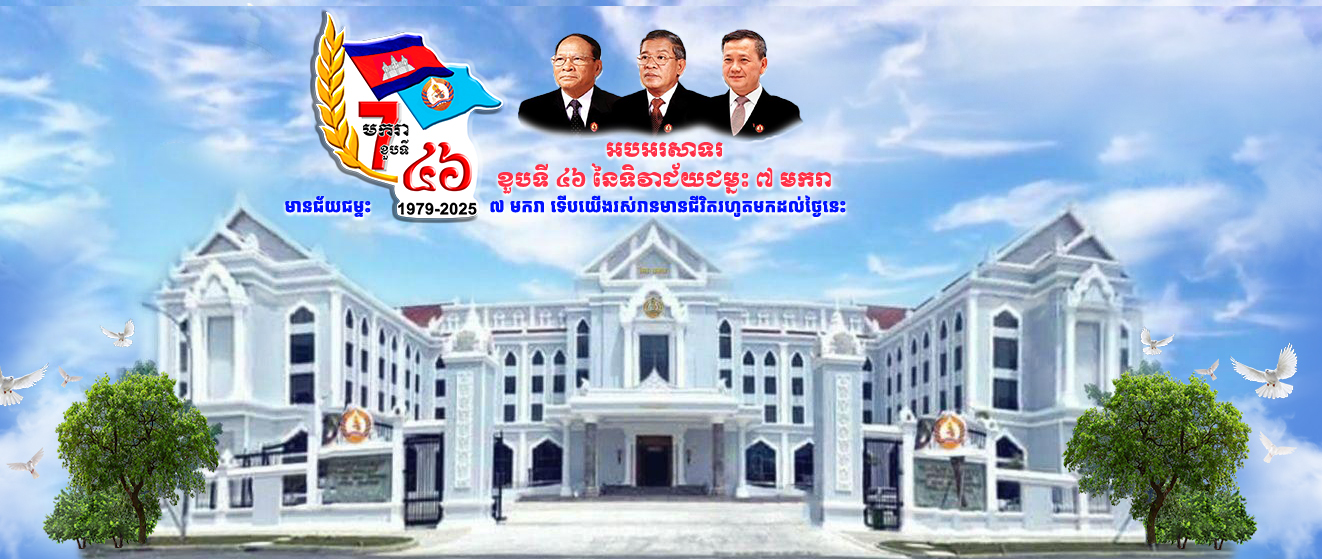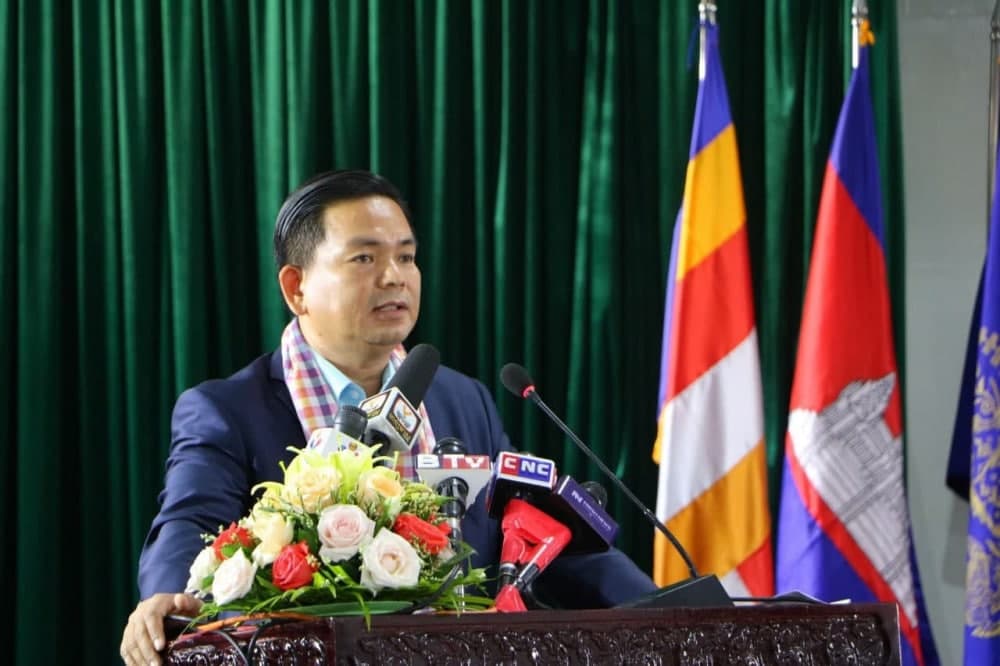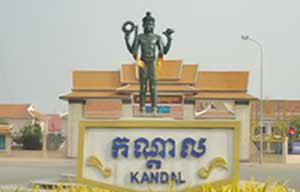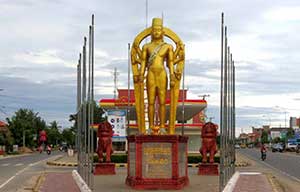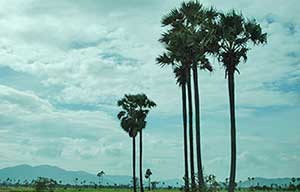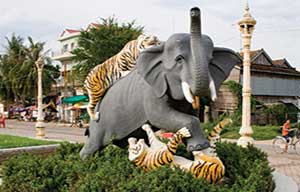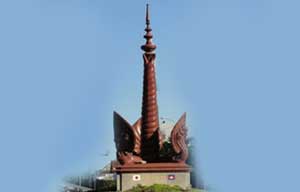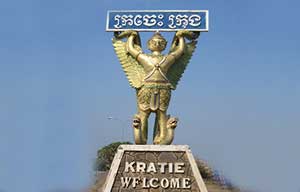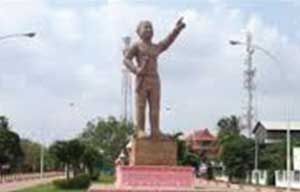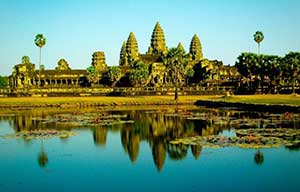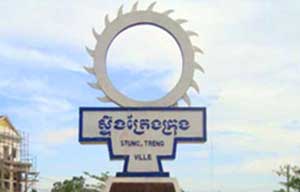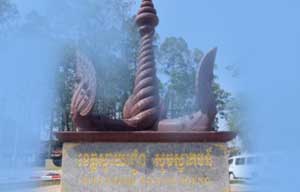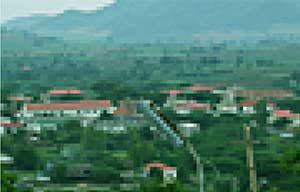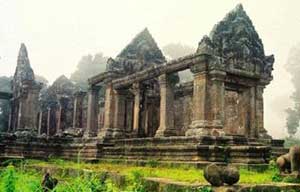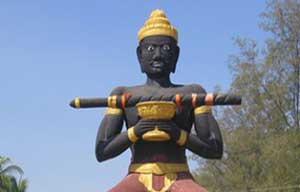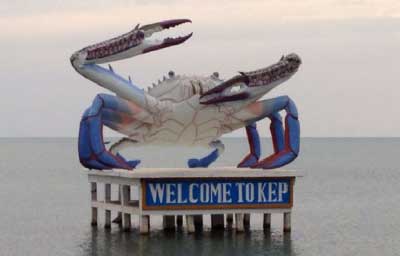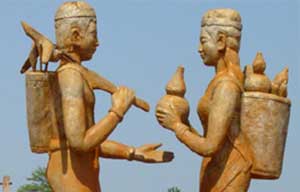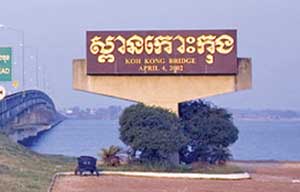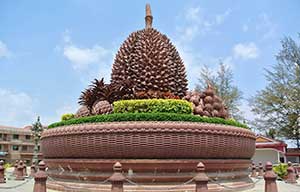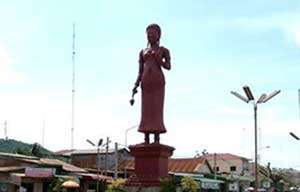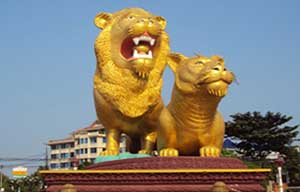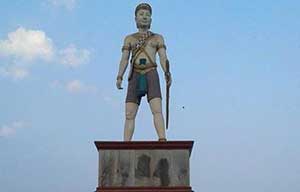This afternoon, Sultan Haji Hassanal Bolkiah of Brunei will hand over the bloc’s chairmanship hammer to Cambodia, and Prime Minister Samdech Akka Moha Sena Padei Techo Hun Sen will take over the role as ASEAN Chair in 2022. In this sense, Dr. Kin Phea, Director General of International Relations Institute of Cambodia at the Royal Academy of Cambodia shared some of his personal views:
“Cambodia was the last country to become a member of the Association of Southeast Asian Nations (ASEAN) on April 30, 1999. Samdech Akka Moha Sena Padei Techo Prime Minister Hun Sen, who brought Cambodia into ASEAN, mentioned four main factors that make Cambodia a member of ASEAN: (1) Non-interference in each other’s internal affairs, through which ASEAN has become an important barrier for the protection of the sovereignty of its member states, (2) Community spirit is the way in which decisions are made by ASEAN based on the principle of consensus, equal rights and equal footing to make decisions, regardless of old or new members or rich or poor countries. (3) Regional integration factor, that is, the core of regional architecture, political, economic and social ones. (4) ASEAN is an important diplomatic gateway for Cambodia. Since Cambodia joined ASEAN in 1999, ASEAN has always been an important part of Cambodia’s foreign policy.
Over the past 20 years, Cambodia has seized many opportunities from its membership in ASEAN, and Cambodia has also made significant contributions to building the ASEAN Community in general and the ASEAN Political-Security Community in particular.
Since Cambodia became a member of ASEAN in 1999, Cambodia has chaired ASEAN twice, the first in 2002 and the second in 2012, and in 2022 Cambodia will chair ASEAN again. As chair of ASEAN in 2022, what will be the opportunities for Cambodia in the process of building the ASEAN Political-Security Community? What kind of preparations should Cambodia make to seize those opportunities?
Of course, the ASEAN chairmanship can be both pride and pressure, both opportunity and challenge. But first of all, what is an opportunity for Cambodia now is a time when we can proudly show that Cambodia, formerly a country, had been besieged and isolated, both politically and economically; it has now become a country that is actively integrating itself into regional and global structures and architectures, and has been actively playing an active role with equal rights and equal footing in all regional and international affairs, and strictly adhered the principle of multilateralism.
At the same time, Cambodia’s chairmanship of ASEAN in 2022 is an opportunity for Cambodia to show its human resources and financial capacity in organising such a large international event. But peace and political stability in Cambodia cannot be overlooked.
If Cambodia were in a state of political turmoil and war, we would not have the opportunity to take on such a huge task. This event will help Cambodia raise its profile in politics, diplomacy, economics, peace operations and international humanitarian affairs.
In the region as well as in the world, many traditional and non-traditional security challenges are emerging, such as rivalries between superpowers, the South China Sea issue, water use issue in the Mekong region, Covid-19 pandemic, vaccination diplomacy issue, and post-Covid-19 economic recovery, natural disasters, cybercrime, transnational crime, human trafficking, local homeless people, migrant workers, climate change, etc. will continue to become increasingly complex challenges.
All of these issues have no boundaries or are the separate responsibilities of any single country, but they are the shared responsibility of the international community, of which Cambodia is a part. Therefore, Cambodia’s role as chair of ASEAN in 2022 is an opportunity for Cambodia to show its ability to jointly solving the above complex challenges.
Cambodia, formerly known as the killing field, an insecure area, a dreaded minefield, has now become a “Peace Island” and a popular tourism destination in Southeast Asia attracting millions of tourists a year.
Cambodia, formerly known for its use of weapons to seize power and to change governments, has now become a country that adheres to the principles of liberal, multi-party democracy through regular, free and fair elections through which the people are offered the opportunities to elect representatives to lead the country, and a country of rule of law with everyone is equal before laws, and a sovereign state with full territorial integrity.
These are lessons and experiences of peace building, national reconciliation and the implementation of win-win policy that Cambodia can share with other ASEAN members during Cambodia’s upcoming ASEAN chairmanship.
Promoting the complete regional integration of ASEAN and ASEAN external cooperation is an important task that ASEAN chair pays hot attention on. Thus, 2022 is an opportunity for Cambodia to push Timor-Leste’s application as the 11th member of ASEAN and the expansion of other ASEAN dialogue partners. At the same time, the last opportunity is for Cambodia to show its potential for development, foreign direct investment and to promote its tourism sector if physical summits and meetings possible.
The above are some of the opportunities that Cambodia can obtain its ASEAN chairmanship in 2022. But the question is, what should Cambodia prepare to seize those opportunities?
In its chairmanship, Cambodia will have both opportunities and challenges. In this sense, Cambodia must be well prepared both domestically and externally to seize opportunities and overcome challenges. Here are some considerations on Cambodia’s preparedness as ASEAN chairmanship.
Absolutely, Cambodia belongs to all of us, not to the Royal Government or any single state institution. Cambodia’s success or failure is the responsibility of all of us, including all Cambodian citizens.
In this sense, in the domestic aspect, it is to ensure that we have everyone on board, taking the “whole-of-Cambodia” approach towards the undertaking of this historical chairmanship role by preparing human resources, materials, budget, technology, security, protocol and hospitality affairs, especially document work for summits and related meetings, being the most important work for this event.
At the same time, all political parties should have a common position on the objectives and priorities of national foreign policy for sovereignty, territorial integrity and national interests, research institutes, national think tanks, as well as other scholars, should work with relevant institutions to provide strategies and policy recommendations so that Cambodia can reap the overwhelming benefits from its chairmanship role; both public and private media should promote widespread coverage of Cambodia’s chairmanship role and disseminate factual information about Cambodia to the public, both inside and outside the country. Also, civil society organisations should contribute to promote the image of Cambodia as chair of ASEAN and to provide constructive recommendations to the Royal Government and relevant institutions. Finally, Cambodian citizens should take a part in the success of Cambodia by being prepared as active citizens with discipline, responsibility, and wisdom.
From the external aspect, both region and world are facing major challenges such as the power rivalries, South China Sea issues and the Mekong region issues, along with the competition between Belt and Road Initiative (BRI) and Indo-Pacific Strategy.
In this situation, Cambodia is required to carry out silent diplomacy and consultation to find common ground for regional cooperation among countries in the region so that ASEAN members do not fall apart, one side running to the United States and the other side running to China just for individual interests.
That is to push the agenda that binds ASEAN, rather than the issues that divide ASEAN, especially to maintain the unity, solidarity and neutrality of ASEAN, and to indicate that ASEAN is the driving force in manage the power competition between China and the United States to maintain and manage conditions/environments conducive to peace and stability in order to sustain regional prosperity.
In addition, Cambodia should raise agendas that are touchable and feel-able so that we can provide ASEAN citizens a strong sense of pride and hope for the future, and confidence for the wellbeing of generations to come with no one left behind, and also try to strike a balance between three pillars of ASEAN such as political-security community, economic community and socio-cultural community.
On the crucial occasion, Cambodia should propose to establish an “ASEAN Control and Coordination Council – ACCC”, which acts as an institution to monitor and evaluate the implementation of ASEAN agreements, statements and other instruments, as ASEAN has signed countless agreements and documents. Yet, actual implementation seems to be limited and ASEAN does not have a permanent mechanism with a full mandate in this regard.
At the same time, the council will act as a mechanism to mediate or resolve internal crises of member states, disputes between member states, and take precautionary measures to curb interference from outside powers.
In connection with the political crisis in Myanmar, Cambodia should set up an ad hoc taskforce to work with Myanmar’s conflicting parties quietly or through back-door diplomacy to share lessons and experiences of peacebuilding and win-win policy implementation for Myanmar. It is also an opportunity to indicate that Cambodia has the ability to help resolve political crises in the same ASEAN member countries.
Helping to resolve the political crisis in Myanmar is not an interference in the internal affairs of the country, but an expression of ASEAN solidarity and mutual assistance based on mutual respect for sovereignty.
Cambodia should continue to enhance its national role and prestige on the international stage by further enhancing the operation of the ASEAN Regional Mine Action Center, which is part of Cambodia’s public diplomacy, from a landmine victim country to an ASEAN leading country in mine clearance action, participating more actively in international peacekeeping and humanitarian affairs, and upholding the rule of law, good governance, democratic principles, as well as promoting respects and protection of freedoms, human rights and social justice to build national image and prestige on the international stage.
Cambodia should act from now on to support the integration of Timor-Leste into ASEAN. Timor-Leste is a state like Cambodia that had gone through conflicts and genocides in the past; Cambodia is clearly aware of the importance of Timor-Leste’s entry into ASEAN as the last member of the grouping.
Cambodia has benefited greatly from its membership of ASEAN. Therefore, it is Cambodia’s duty to supporting and assisting Timor-Leste to join ASEAN in order for ASEAN complete regional integration. At the same time, Cambodia should promote the expansion of ASEAN’s external cooperation partners for the benefit of ASEAN and for balance.
Cambodia should continue to strategically diversify its diplomacy, support the principles of multilateralism, maintain close ties with all major powers, strengthen the important role of ASEAN by adhering to the principles of rule-based international relations, and promote peace through dialogue and negotiation. Cambodia should take an absolute neutral stance on international conflicts and sovereignty. Cambodia can also play a broker’s role in easing the South China Sea conflict escalation.
Finally, along with the summits and related meetings, Cambodia should organise a business and investment forums to show Cambodia’s potential and attractiveness for trade, investment and tourism in line with Cambodia’s economic diplomacy strategy. However, in order to ensure its competitive advantage, Cambodia needs to continue to carry out comprehensive, practical and effective reforms of state institutions, continue to strengthen and expand economic infrastructure that can reduce transportation costs and production costs, electricity and water supply at a lower price, reduce or eliminate bureaucracy in investment procedures and, finally, strengthen human resource development to ensure that Cambodia has skilled and semi-skilled workforces to meet the needs of domestic, regional and inter-regional markets.
In conclusion, in its chairmanship role, Cambodia might have many opportunities to show its image and prestige on the international stage and its ability to contribute to solve regional and international issues, and it is a great honour for Cambodia to hold such a brilliant role. However, either Cambodia’s success or failure depends on Cambodia’s preparedness in both domestic and external affairs, and with full participation of all relevant institutions and all components of Cambodian society by putting national interests ahead. Ranging from political parties to research institutions and national think tanks, and from public and private media and civil society organisations to researchers and Cambodian citizens, each of whom has a part to the success or failure of Cambodia’s historic chairmanship role.”

